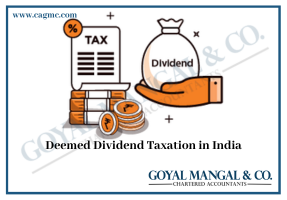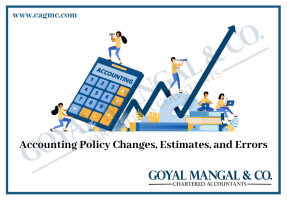
In India, there are a number of rules that need to be followed when traveling or driving on the road as it makes for good traffic. Similarly, there are accounting rules that an accountant must follow when recording a business transaction or recording accounts. They may be called accounting concepts. Therefore, it can be said: “The term accounting concept refers to the basic rules, assumptions, and principles that serve as the primary standard for recording business transactions and bookkeeping of accounts”.
|
Table of content |
Introduction to accounting
The worldview of bookkeeping and accountants may involve helpless characters who explore horrific statistics collected in indescribable columns. However, a brief and interesting explanation of the accounting is available:
- Accounting is a business language spoken well by well-organized and trusted professionals called accountants.
Additional information on accounting education is provided by the American Accounting Association:
- The process of identifying, measuring and communicating economic information to allow informed judgments and decisions of information users.
Accounting conventions
Accounting agreements are certain complex business boundaries that are complex and unclear. Although the accounting agreements are not legally binding or binding, these generally accepted terms maintain consistency in the financial statements. Although financial reporting procedures are standard, accounting principles consider comparisons, full disclosures of transactions, compliance, and use in financial statements.
- Conservatism: It tells investors that they have made a mistake on the part of caution when providing estimates of assets and liabilities, which means that if there are two levels of activity available, it means that the lower one should be referred to.
- Consistency: The company is obliged to apply the same calculation principles in different calculation cycles. If you choose this path it is recommended that you hold on to it in the future, unless you find a good reason to do it the other way. In the absence of this accounting conference, investors’ ability to compare and evaluate how the company is doing becomes a major challenge.
- Material: means that all important facts should be recorded in accounting. Accountants should record important information and leave out trivial details.
- Complete disclosure: includes disclosure of all information, which is favourable and risky for the business entity, and which has the value of assets to lenders and creditors.
Accounting principles
- Accrual Principle: This is the idea that accounting activities should be recorded at accounting times when they occur, not at times when there is a related cash flow.
- Conservative Principle: This is the idea that you should record expenses and liabilities as soon as possible, but only record income and assets only if you are sure they will happen.
- Flexibility Principle: This is the idea that, once you have adopted the accounting policy or method, you should continue to apply it until the best principle or method appears.
- Matching Principle: As with this vision, the company intends to continue its operations for the foreseeable future.
- Revenue Recognition System: According to this principle, revenue should be recognized when available and not when the amount is recognized. These terms are set out in Accounting Standard 9 (Revenue Recognition).
Accounting concepts
- Business entity concept: The concept is that business is different and entrepreneur is different. In addition, a different the business concept states that we should always record business activities and owners separately. The concept is very important in terms of ownership, as this is a situation where the issues of owner and business often come together.
- The concept of monetary measurement: Only business activities can be disclosed in terms of monetary records recorded, although records of other types of transactions may be kept separately. Example qualification and experience of the owner are not shown in financial statements and similarly the value of human resources and not shown in the financial statement.
- Dual concept: For all credits, the corresponding amount is deducted. Performance recording is only completed with this dual feature.
- Going concern concept: In financial accounting, an entity is expected to continue for a long time and fulfil its obligations and obligations. This assumes that the business will not be forced to stop working and end its assets at “fire sales” prices.
- Cost Concept: Assets should be recorded at their historical Cash Value and not at market value / opportunity cost / recoverable amount. An expense policy is a statement of accounting that records assets in cash at the time the asset is purchased or acquired. Recorded assets will not be increased to improve market value or inflation, and will not be revised to reflect any decrease. Impact: Fixed Assets are recorded for costs incurred until they are fit for use in the case of assets and not at any other cost.
- Matching concept: In this sense Costs should be compared to the related revenue. The same policy requires that revenue and any related expenses be recognized together during the same reporting period. Therefore, if there is a cause-effect relationship between income and expenses, record them simultaneously. Example: One-time income should be equal to the expenses associated with income.
- The concept of realisation: In this sense, profit is only apparent when it is earned. Prepayments or charges are not recognized as profit until the goods or services are delivered to the buyer.
- Periodicity: The concept of periodicity, can also be called the concept of period, the period during which business entities are required to adjust their financial statements from time to time. Temporary reporting (Half / Quarterly) cannot be called accounting time. Finance namely 1 April to 31 March is usually called the Accounting Period for business entities. The calculation time is not only to know the result (gain / loss) of the period but also to conclude and not to record further in that calculation time.
Conclusion
The accounting policy follows the general principles of accounting to provide consistency and discretion in accounting for financial services and reporting in the financial statements. It is important that you get to the Test Sheet immediately, the Balance Sheet and the Profit and Loss Account statement without any hassle. Modern accounting software makes this an easy task by accepting and reporting a basic accounting policy based on its accounting principles, concepts and principles.







